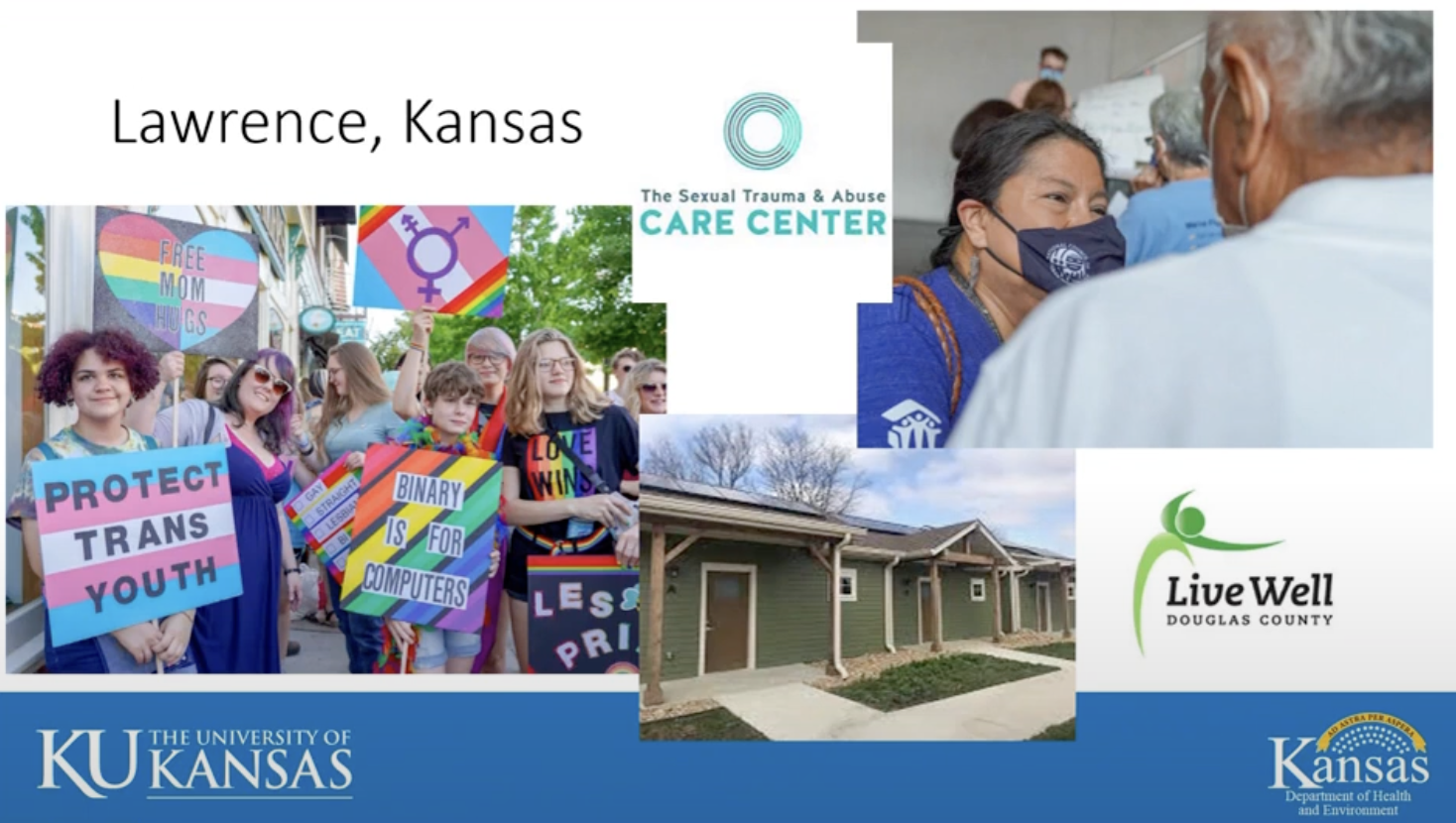Programs in Kansas Presented as a Model to Address Sexual Violence by Reducing Health Disparities
Last year, the Kansas Bureau of Investigation reported 22,233 incidences of domestic violence. Nationally, someone is a victim of a sexual assault an average of every 68 seconds.

At the National Sexual Assault Conference in San Francisco this summer, presenters from Kansas and the University of Kansas shared how initiatives in the state are working to end sexual violence using a framework of support.
Christina Holt, assistant director at KU Life Span Institute’s Center for Community Health and Development (CCHD), and Belinda Flores, director of the Rape Prevention and Education (RPE) at the Kansas Department of Health and Environment, spoke at the conference about efforts to reduce disparities and address social determinants of health.
“We have been shifting over the last five years to an increasing focus on intervening at the community and societal level, where a larger and more sustainable impact can be made” Holt said. “We’re working hard to address things like the socioeconomic, educational, and social policies that are maintaining social inequalities that are in our state.”
The RPE program is funded by the Centers for Disease Control and Prevention and provides funding to prevent sexual violence. It encourages the development of comprehensive prevention strategies through a public health approach with a multi-level Social-Ecological Model, which considers not just individuals and relationships, but also communities and society.
These interventions in Kansas have included things like bystander intervention training for members of the community, as well as for staff at places that serve alcohol. Interventions also include increasing social connectedness, addressing the lack of access to safe and affordable housing, gender pay equity, and family-friendly workplace policies — which all provide benefits beyond preventing sexual violence.
“Family-friendly workplace policies help with worker retention, and attract new workers in a competitive workforce,” Holt said. “So, we know it’s good for business, as well as for Kansas kids and families.”

Holt heard positive feedback from other guests at the national conference, including one person from New York who told them that Kansas was five years ahead of other states with its prevention work, “Which we took as a huge compliment!” Holt said.
The initiatives in Kansas were developed with support from the Community Tool Box, a free online resource from the CCHD that provides collaborative community organizing tools for change and improvement that others are encouraged to utilize for their own needs.